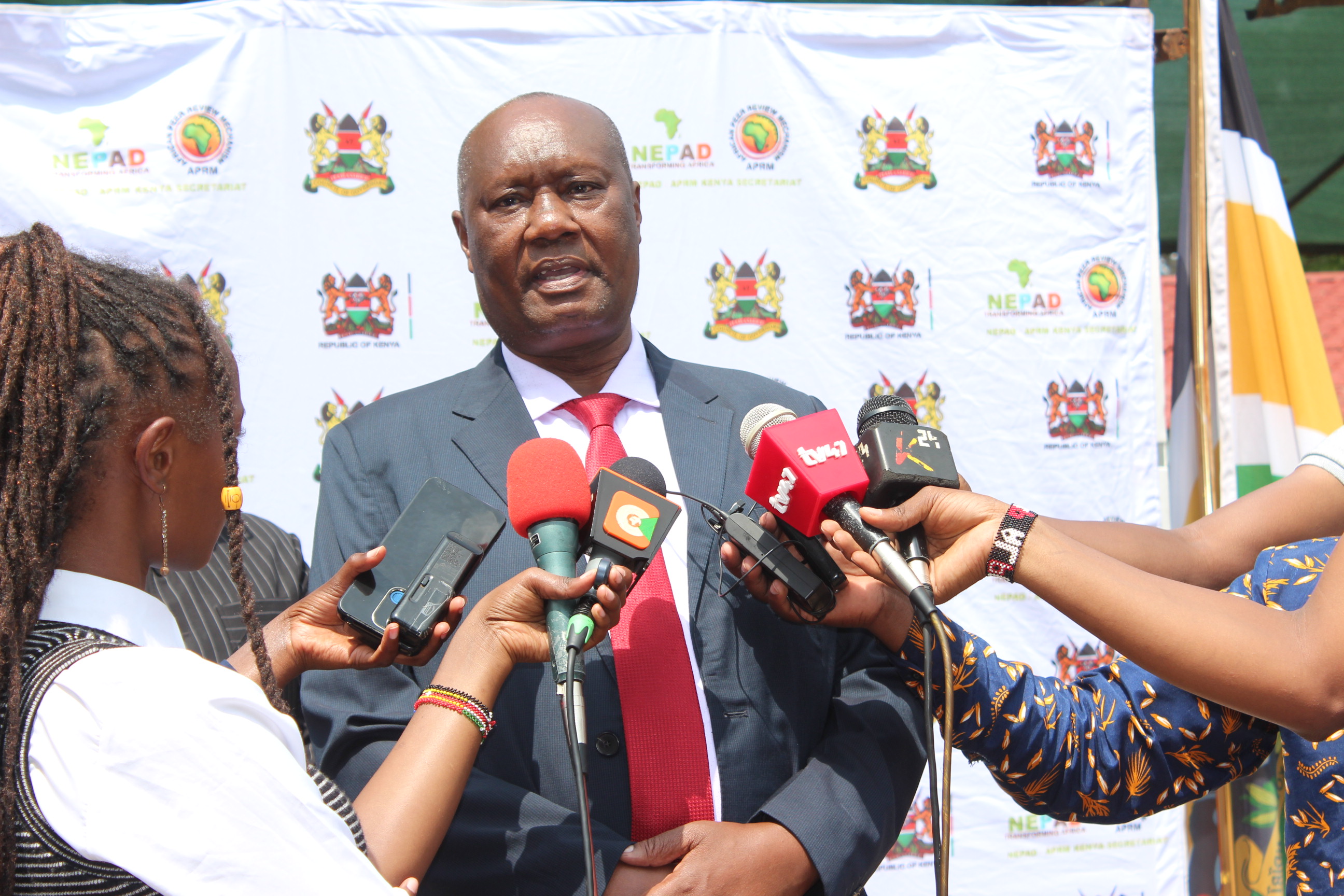 Sospeter Ojaamong, the chairperson of the NEPAD/APRM Kenya secretariat at Murang'a county headquarters in Murang'a town
Sospeter Ojaamong, the chairperson of the NEPAD/APRM Kenya secretariat at Murang'a county headquarters in Murang'a townA self-assessment report has revealed that Murang’a county is performing poorly in the fight against drugs and alcohol abuse.
The report prepared by New Partnership for Africa's Development /Africa Peer Review Mechanism Kenya Secretariat says the county grapples with high cases of gender-based violence.
Ambassador Rukia Subow, lead panelist for Murang’a, said alcohol and GBV are the main concerns in the county.
Subow spoke during the handing over of the report to Governor Irungu Kang’ata.
She called for more funding on activities seeking to senitse communities against the use of drugs and alcohol and the harmful effects of GBV.
The panel only focused on 14 devolved functions but said there are other crosscutting functions that need concerted efforts from national and county governments.
Kang'ata praised the report, saying it will help counties to evaluate their performance and learn from each other.
Under the county peer review mechanism, surveys are conducted among residents through focused group discussions where certain people are selected and asked questions.
“The assessment revealed that we’re performing poorly in matters related to control of alcohol, drugs and GBV, but it also revealed that we’re excelling in implementation of ECDE, healthcare and agriculture," he said.
The report further proposed transportation of seeds and subsidised fertilisers to polling stations for easy access.
Sospeter Ojaamong, chairperson of the Nepad/APRM Kenya secretariat said the review is a voluntary initiative that allows independent reviews and recommendations on how counties can improve in provision of services.
“This is a voluntary programme; the governors cannot assess themselves but with the help of APRM, we can come in independently and review them for the sake of pointing out areas where counties have excelled or are failing and how they can improve," he said.
The Nepad/APRM Kenya secretariat is a semi-autonomous government agency under the National Treasury, with a panel of eminent persons, who have served the country in various capacities.
These persons visit counties to listen to suggestions from the public.
“They listen to opinions of the focused groups on how the governor has performed in devolved functions such as infrastructure, water and Early Childhood Development Education and come out with an independent report," Ojaamong said.
“We are here today to validate what we collected from the public.”
The self-assessment helps promote good governance practices and facilitates peer learning of best practices for balanced socio-economic development across the country.
Nine other counties are involved in this validation phase, including Nakuru, Embu, Gishu, Kericho, Baringo, Uasin, West Pokot, Laikipia, Nyandarua and Taita Taveta.
These counties have completed a comprehensive self-assessment addressing key governance areas such as public participation, service delivery, economic development, transparency and accountability in the devolved functions.
Ojaamong said participating counties will then discuss their reports at a summit scheduled for August this year, noting that one of the common challenges across the counties is the control of drugs and substances.
“We will be having a summit where the 10 counties we are reviewing will come to discuss their reports and suggest the best way to handle suggestions from the grassroots," he said.











